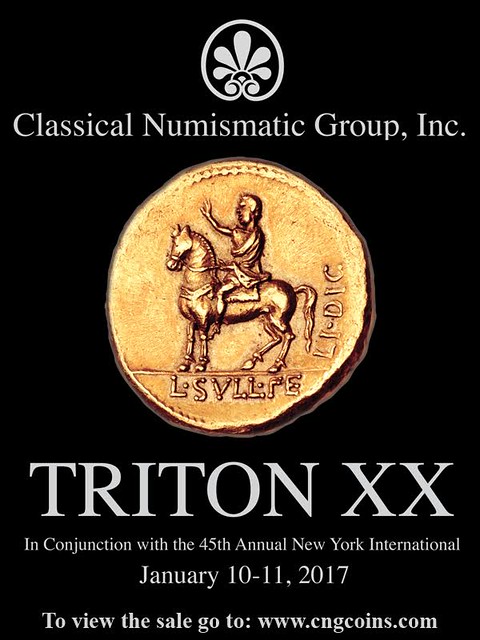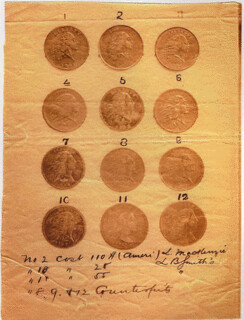
PREV ARTICLE
NEXT ARTICLE
FULL ISSUE
PREV FULL ISSUE
A HISTORY OF COIN PHOTOGRAPHYJeff Garrett published a great article December 19, 2016 on CoinWeek about the history of coin photography. Here's an excerpt. -Editor
The first United States auction catalogue to use actual photographs was the 1868 Cogan sale of the McKenzie collection. Early auction catalogues are highly collectible and over the next several decades many extremely important collections were auctioned. The quality of photographs in these early catalogues varied extensively. A recent auction catalogue by Kolbe and Fanning offering an example of the 1911 Thomas Elder auction of the William Woodin collection states: “[E]xtremely rare, with remarkable photographic plates painstakingly executed by the multi-talented Edgar Adams, one of the most prolific American numismatic researchers and photographers of the early twentieth century.” The catalogue sold for $2,937. From 1868 until around the 1970s, most auction catalogues used the same standard black-and-white illustrations. The quality of images varied greatly from company to company. In 1984, I started a rare coin auction company and getting the photography in place was quite the chore. We needed to build a dark room and hire someone to take the pictures. Our first auction catalogue used images that had been developed in a bath tub by my partner, Ron Guth. Today, digital photography is one of the key tools for the business of numismatics. Everyone who lists a coin on eBay, has a website, or produces catalogues is highly dependent on quality digital images. The skill to take great images and to manipulate them with software is very desirable. Each day thousands and thousands of images of rare coins are posted online by rare coin sellers around the world. These range from horrible pictures taken with a phone camera, to studio pictures that are amazing. The market desirability of coins with great images is seen in the sales by online coin companies. There are several companies who pride themselves in the fantastic images they use for their web business. I have even heard some of them state that they take into account how a coin will photograph when making a purchase. A few rare coin companies outsource images for important coins to get the very best results. Recently, I overheard a conversation by one of these sellers stating that they send the coins to multiple photographers trying to get the best image possible. It’s sort of like trying to get an upgrade on a coin photo! To read the complete article, see:  Wayne Homren, Editor The Numismatic Bibliomania Society is a non-profit organization promoting numismatic literature. See our web site at coinbooks.org. To submit items for publication in The E-Sylum, write to the Editor at this address: whomren@gmail.com To subscribe go to: https://my.binhost.com/lists/listinfo/esylum All Rights Reserved. NBS Home Page Contact the NBS webmaster 
|
